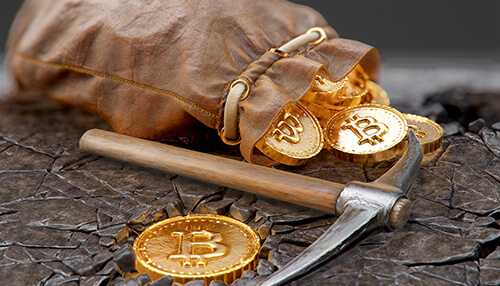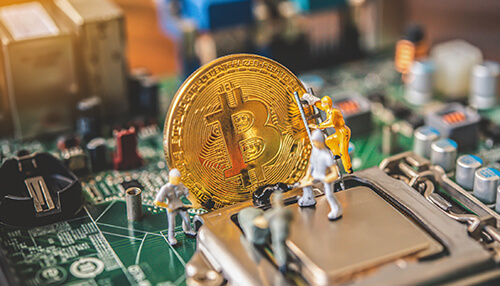Bitcoin trading at Bitcoin Succeed has taken the world by storm and everyone wants to get in on the action. Along with Bitcoin trading comes into the picture Bitcoin mining which is in trends nowadays. But not all Bitcoin miners are successful, and many have even lost money due to missteps or malicious attacks.
If you’re thinking about jumping into the Bitcoin mining game, here are some things you should know before you invest any money in a new miner. This helpful guide on how to mine Bitcoins will answer all your questions and make sure you’re successful from day one!
What is Bitcoin mining, exactly?
The blockchain, which is known as a public ledger, records all transactions between users. Mining uses computing power to verify those transactions and ensure that they are successfully added to the blockchain, where they then become impossible to change. Each batch of verified transactions adds another block of data to the chain—hence blockchain technology.
Miners use software applications known as miners or mining rigs that run specific computer programs on high-speed hardware in order to compete against other miners for solving blocks on multiple computers at once. They need enough speed and computing power because verifying one block can take as much electricity as powering an average house for one month.
Hardware needed in Bitcoin mining
Depending on how much money you are willing to spend, there are two main types of hardware that you need for mining: ASICs (Application-Specific Integrated Circuit) and GPUs (Graphics Processing Units). ASICs tend to be more efficient at mining Bitcoins but cost significantly more.
To give you an idea of just how powerful ASICs are, imagine trying to mine Bitcoin with your standard computer – it would take years! With a decent GPU, you can start mining in minutes.
Pools in Bitcoin mining- All you need to know about
Each time an encryption solution is discovered, it’s shared with other miners. The problem is, you can’t just share your solution with anyone—other miners need your solution too, and sharing it without getting paid for it would be stealing.
That’s where mining pools come in; they allow miners to pool their resources together and agree to share rewards based on how much work they contributed (hence pooled mining). They also keep everything nice and neat by organizing these solutions into blocks of transactions. Using pools allows you to receive steady payments every day without having to solve difficult problems or deal with many different payouts.
How can I start mining for bitcoins today?
After you’ve read up on your prospective bitcoin mining operation, it’s time to get your hands dirty. If you want to start mining for bitcoins right away, here’s an introduction for those who are thinking about getting started with their new hobby. Here are some steps that will help make your introduction into cryptocurrency mining go more smoothly: Find Out How Many Bitcoins Are Mined Per Day: The first thing you should do is learn how many bitcoins are mined per day—and how much electricity it takes to mine them.
Common questions about getting started in bitcoin mining
The first step toward getting started in bitcoin mining is to buy yourself some bitcoins. How do you do that? If you have friends who are already into bitcoin, you can ask them if they’ll sell you some, or if they know someone who will. Otherwise, use an exchange like Coinbase or Bitstamp. They’re U.S.-based exchanges and so offer much better liquidity than European ones.
Conclusion
Since you’re reading a bitcoin mining guide, chances are good that you have at least some interests in bitcoin and cryptocurrency. Among all the popular money making options with cryptocurrencies, one fine way is to do mining. Miners are people or companies who use their computer hardware to help process transactions on blockchains—which helps keep them secure and verifies their legitimacy.
Anyone can set up their computer or buy special mining software and become a miner for crypto coins (not just bitcoin). But, setting up hardware isn’t free and your monthly electric bill will likely rise if you decide to join one of these networks.



